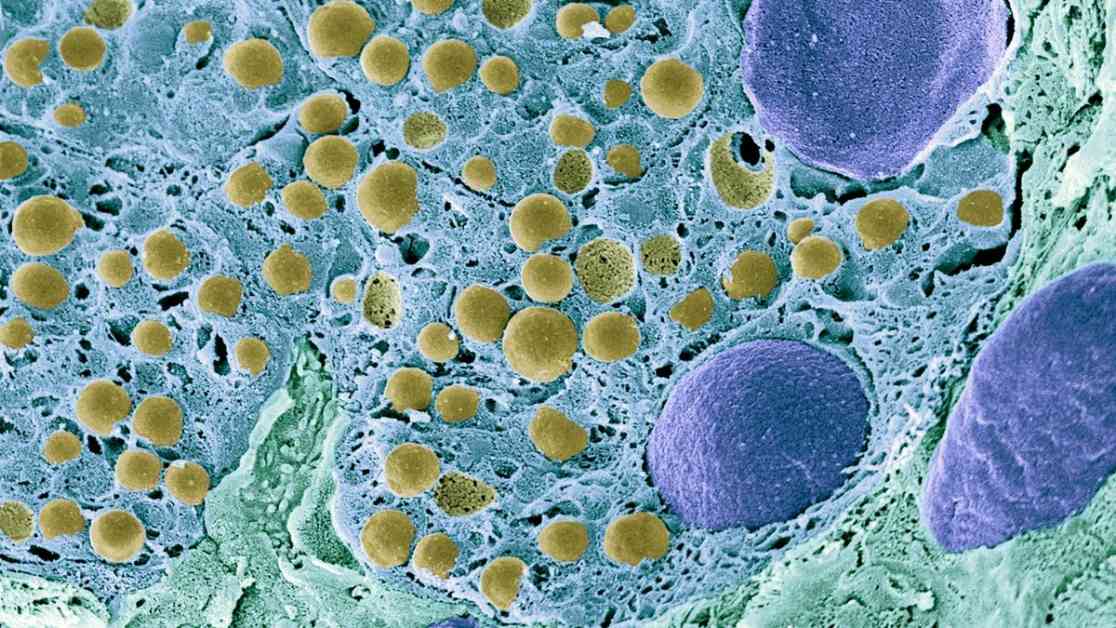Scientists in China have achieved a groundbreaking feat by reprogramming a woman’s fat cells into insulin-making pancreatic cells, effectively reversing her type 1 diabetes. This innovative approach holds promise for the future treatment and potential cure of this chronic disease. The patient who underwent this procedure has been insulin-free for over a year, showcasing the success of this reprogramming technique.
In type 1 diabetes, the immune system targets and destroys insulin-producing cells in the pancreas, leading to a lack of insulin production. Without insulin, cells are unable to utilize sugar for energy, resulting in elevated blood sugar levels and potential health complications. The reprogrammed stem cells, derived from the patient’s own fat cells, were transformed into islet cells and implanted back into her abdomen.
Prior to the procedure, the patient struggled to maintain healthy blood sugar levels, spending less than half of her time within the target range. However, after the cell transplant, her blood sugar control significantly improved, with over 98% of her time spent in the target zone. Remarkably, she no longer required insulin injections to manage her blood sugar levels just 75 days after the transplant.
Traditional islet cell transplants involve harvesting cells from donors and transplanting them into patients with type 1 diabetes, but this approach has limitations, including the need for lifelong immunosuppressant drugs and a limited supply of donor cells. The use of reprogrammed stem cells offers a potentially unlimited source of islet cells for transplantation, without the need for strong immune-suppressing medications.
The success of this innovative treatment highlights the potential of stem cell technology in treating type 1 diabetes. Companies like Vertex Pharmaceuticals are also exploring the use of embryonic stem cell-derived islets to normalize blood sugar levels in patients. While challenges remain, such as immune system rejection of transplanted cells, ongoing research aims to address these obstacles and make stem cell transplants a viable option for more individuals with type 1 diabetes.
This groundbreaking research paves the way for future advancements in diabetes treatment and offers hope to those living with this chronic condition. The ability to reprogram fat cells into insulin-producing pancreatic cells represents a significant step forward in the quest for a cure for type 1 diabetes. As scientists continue to explore the potential of stem cell technology, the future looks promising for individuals affected by this disease.




